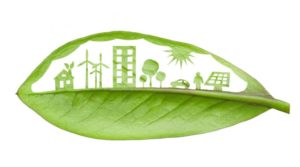The historic Paris Agreement offers an opportunity for countries to strengthen their response to the threat of climate change by keeping the temperature rise under two degrees Celsius, and, keeping in mind the severe risks it entails, to make an effort so it does not rise above 1.5 degrees. The Agreement went into effect on the 4th of November, 2016.
The UN keeps encouraging all the interested parties to take measures to reduce the impact of climate change.
If we followed these guidelines, we would fulfil that which was agreed upon and asked from us, but is it enough? If we think about the subject more carefully and with a critical attitude, we will see that the “easier” option is to follow these guidelines and be done with it. Nobody doubts that fulfilling the agreement’s rules requires a great effort from everybody, although it is not unreasonable to think that, maybe, we could do even more.
On the 27th of February, 2017, the 4th Responsible Planet Encounter was held in Barcelona; it is a reference forum for companies and experts dedicated to improve the planet through innovation, sustainability and CSR(corporate social responsibility).
In this conference, subjects of great importance were debated, like what has been done so far in the name of sustainability and society. There was even time to explain what Corporate Social Responsibility was. In the words of José Luis Blasco in his presentation Lecciones Aprendidas (Learnt Lessons): ‘Companies do not know why they develop strategies for corporate responsibility and sustainable development.’ He added: ‘Internationalisation, debt reduction and cost efficiency seem to be a common strategy. Nonetheless, the goals that are really worthwhile are those that can transform our reality.’
Dr. Miguel-Clüsener-Godt, coordinator of UNESCO’s MaB programme, reported that ‘countries do not want to become laboratories, but are the epitome of green economy and society. […] The Biosphere Reserves are still seem as political weapons, but not as tools of party politics, since they are above all the differences that exist in the world of politics.’
In conclusion, sustainability is everybody’s business. However, it was also pointed out that overexposure to visual impacts and the saturation of messages we are exposed to every day can negatively affect our opinion of the source of said messages, going so far as to create indifference and a lack of emotional connection. We need to look into what causes this phenomenon and change our course so that companies can be relevant again in our lives and add positive inputs through their Corporate Social Responsibility in a way that makes our society be more conscious and work towards a common good. Long-term strategies are more likely to succeed, since ‘working long-term means working in a sustainable way.’ (José Luis Blanco)
Once we have taken all of this into consideration, has our opinion changed? Do we still think that just doing what we are advised to do is enough? Is there something else we can do? Where do great changes lie? Great changes are, without a doubt, born out of little actions, repeated a thousandfold, made by each and everyone of us. Let’s be part of the change; let’s be sustainable.
Sustainability is defined as the satisfaction of current needs without compromising future generations’ ability to satisfy theirs, ensuring a balance between economic growth, caring for the environment and social welfare. This creates the idea of sustainable development, a progress method that maintains this delicate equilibrium today without threatening the resources in the future. From here, we can bring up a couple of concepts more, like environmental sustainability, which puts emphasis in preserving biodiversity without having to give up on economic and social progress; economic sustainability, which is in charge of the activities that make sure that environmental and social sustainability are profitable; and social sustainability, which looks for a union between the people and their own sustainability.









No Comment
You can post first response comment.